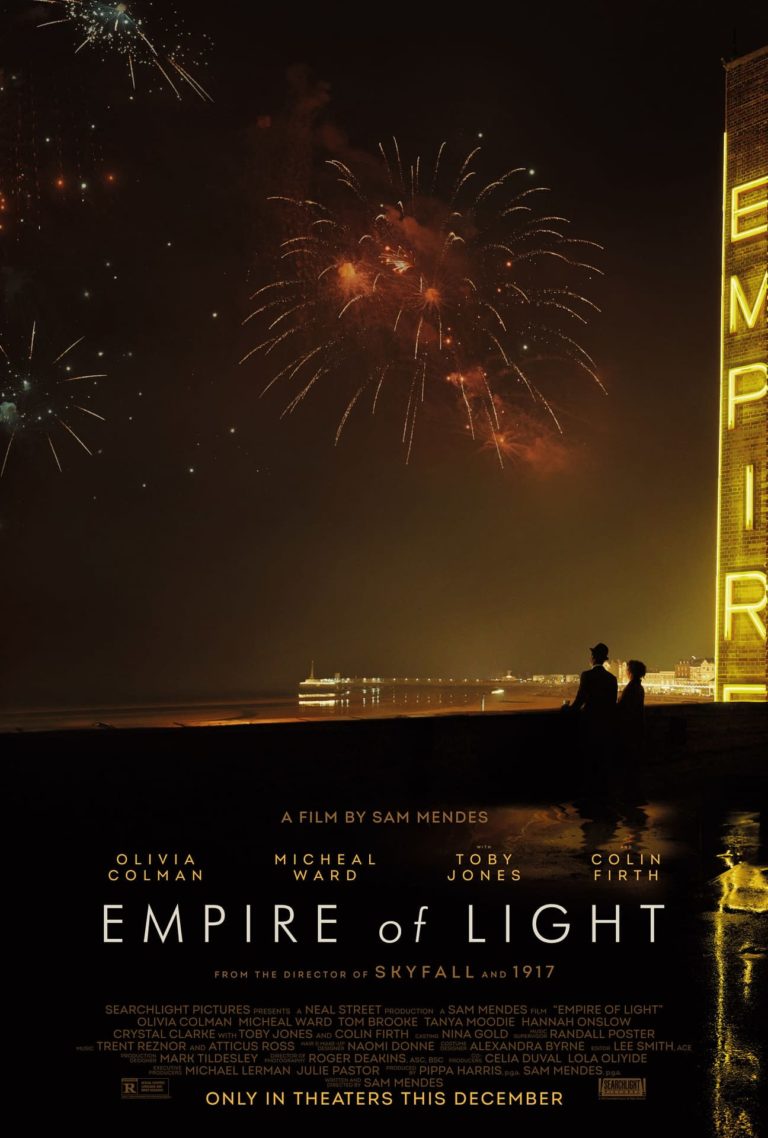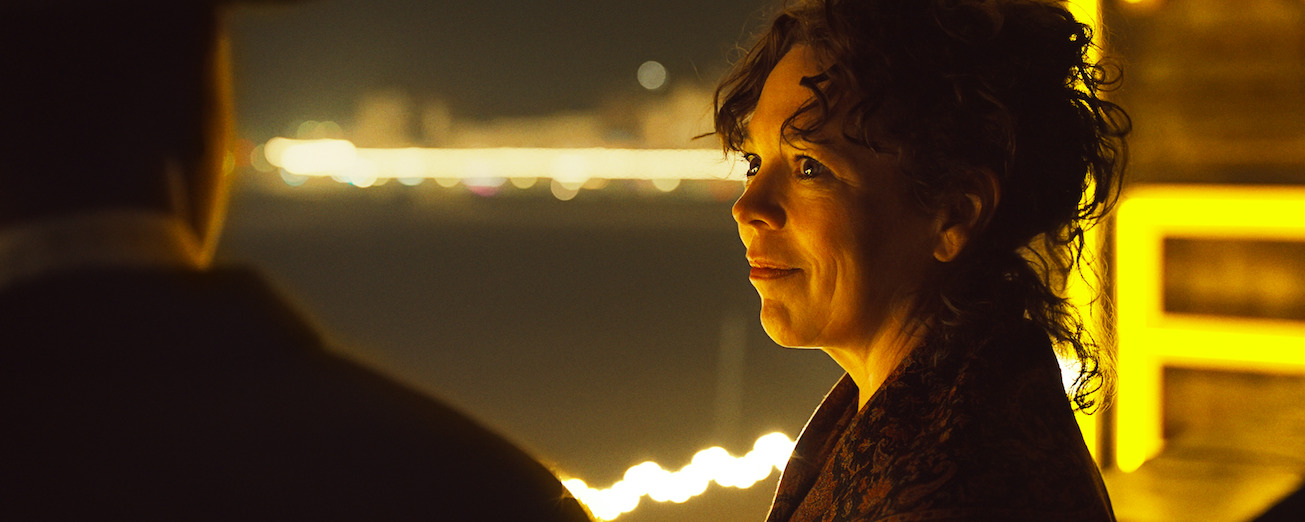
Empire Of Light is the latest cinematic oeuvre by Academy Award-winning director and writer Sam Mendes. The story is set in England in the Eighties, in a south coastal town where the life of several characters revolves around a beautifully faded old cinema. This venue becomes the stage for a secretive romance and the theatre of racial tumults that characterise those turbulent times.
Hilary (Olivia Colman) is the cinema manager at the Empire. She is a middle-aged, lonely woman, who is struggling with her mental health. Stephen (Micheal Ward), a new employee who longs to escape this provincial town is welcomed with sensitivity by Hilary, who will help him face the daily adversities of a black man within the small-minded community. These two individuals are drawn to one another as they find a sense of belonging as an unlikely and tender relationship blossoms and develops under the uplifting magic of motion pictures.

Besides the protagonists, the cast includes British A-listers such as Colin Firth and Toby Jones, along with talented thespians like Monica Dolan, Tom Brooke, Tanya Moodie, Hannah Onslowand and Crystal Clarke. As regards the talent behind the camera, the theme of misplacement is enhanced by the evocative setting found by production designer Mark Tildesley: Dreamland, a former cinema and ballroom with an impressive art deco exterior attached to a seaside funfair. The location which is the heart of the story is the beguiling seaside town of Margate, on the northern shore of Kent, that is captured majestically by the cinematography of BAFTA and Academy Award-winning director of photography Roger Deakins. He has the ability to enhance the melancholic charm of this maritime location that possesses an exceptional visual landscape. In fact, Margate had already inspired artists in the past, as Mendes explains: “J. M. W. Turner painted most of his famous paintings, because he said that the skies were the finest in Europe, and T.
S. Elliot wrote ‘The Waste Land,’ sitting in a bus shelter just outside of the cinema looking out over the beach and the grey sea that sits beyond. There’s a breadth about the place, which gives it poetry and a cinematic scope.”
Mendes in Empire Of Light, just like some in some of his previous period movies — such as 1917 and Revolutionary Road — utilises the historical context as a magnifying glass for the characters’ need to overcome rupture and alienation. Hilary and Stephen, though they seem different in every conceivable way, find a rite of passage that brings them both to a personal development. This allows them to emerge like phoenixes from the ashes, each one in a different way, confronting their most problematic vulnerabilities and becoming stronger individuals.

The British filmmaker developed the film during the pandemic, digging into his formative teen years of the late Seventies and early Eighties.
It was a period of cultural and political upheaval in the United Kingdom, and he managed to create a parallel with what the world is experiencing today. Empire Of Light is a cry for help, in a time where racism and discriminations are making their return. As Mendes effectively explained: “Movies deal in mythic landscapes.You’re always looking for a point where the past becomes somehow bigger in scale, and greater in theme, and more fabled than the present.
Looking back now, this period in England seemed to me one where the intersection of racial politics and music and movies was particularly special and unusual.”
The moving drama about the power of human connection, bestows upon the arts the ability to acquire a sense of acceptance. This story of two lost souls, finding a family within the cinematic realm, is a universal parable that will resonate with many moviegoers who identify as misfits. In a time when finally diversity and inclusivity are being discussed as a crucial foundation for our society, Empire Of Light acts like a beacon of hope to reach that promised goal.
Final Grade: A-

